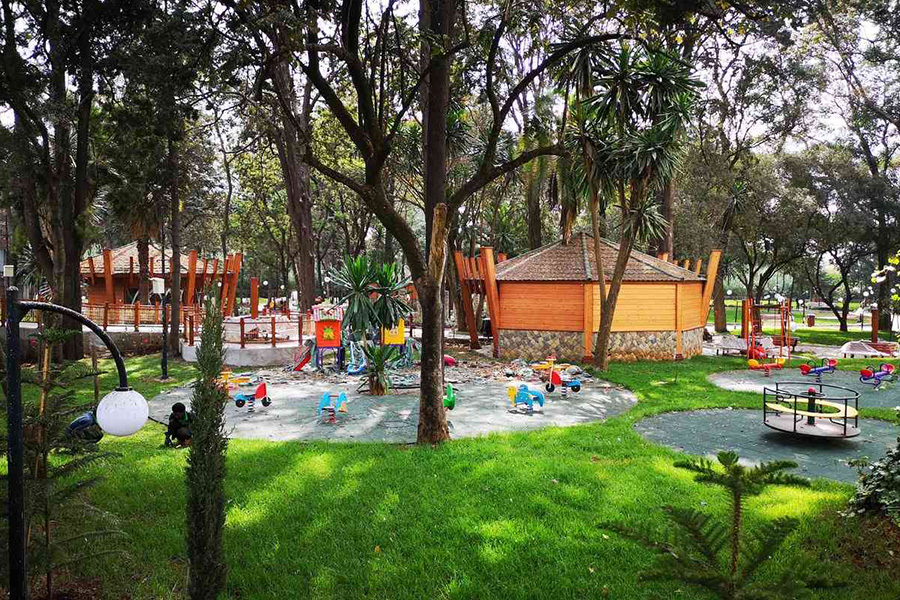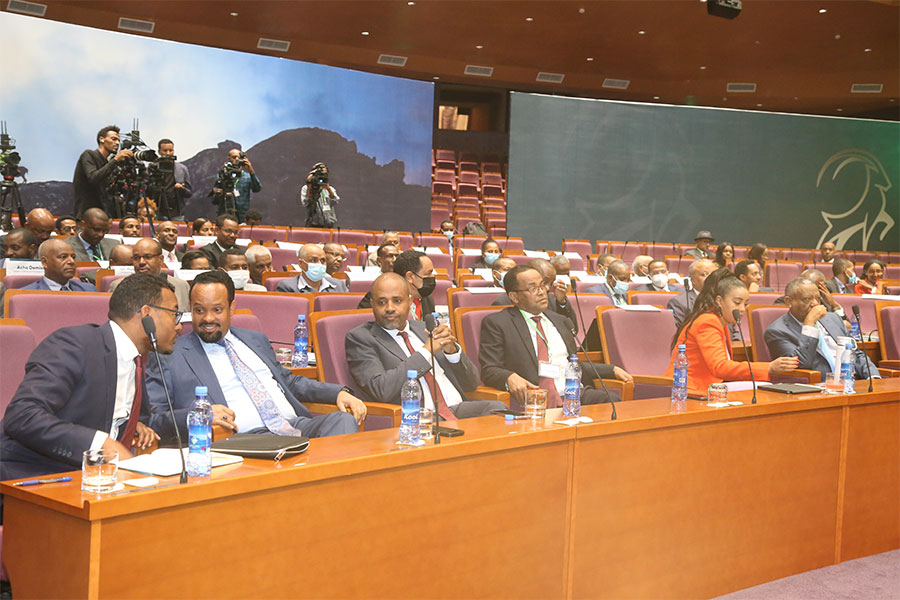
Fortune News | Oct 20,2024
I describe my daily routine of cleaning the area around my house before I go for a walk as “a mandatory public service.” Some of my neighbours think it is precious, some helpful, while I feel it is self-enriching.
One recent Sunday coincided with the evening before I went to a public service office. It may click on someone’s mind that even shops should be closed on that day so that people take a break from their busy week, rest at home and spend time with their families to refresh and get a boost to start the subsequent week. As if it does not sound awkward enough, it was for the fifth time within two or three months.
While walking on the cobblestone alleyway, passing by the makeshift office of one of the Edirs - usually busy on Sundays - how the institutions from the neighbourhood joined hands and made building all the internal alleyways easier, among many other community deeds, sprang to my mind. Afterwards, I was engulfed with the bestirring overwhelming feeling of community from Equb and Edir, as well as the participatory hallmarks in accountability, transparency, tolerance and dialogue through friendship that dampened defaults.
I, among others, have followed up with a public service office for seven years before without any response, wondering how the issue is being reported in that particular office’s periodic progress report. As I pondered whether this is time to force them to focus on what they have not accomplished and queries explicitly, they failed to be responsive within an acceptable timeframe instead of what they claim they have achieved.
Thinking about what they have caused to society, I arrived at the place with public transport.
It was the same with all the public offices on Sunday. Yet, hundreds turn out every weekend, as I did despite these odds. A network in the office is engaged in delaying the handling of issues, putting off responsiveness, through tactics, as a means to wear out opponents by instigating complaints to demonstrate that nothing is changed following a recent change in the management.
This unresponsiveness challenged the government as employees who stepped off their primary duty as public service through laziness and favouritism.
A related issue about the public service office is set on the historic Hager Fikir Theatre stage through a satirical comedy by Teshale Assefa (PhD), as he uses comic elements to expose the realities of public service. In the bargain, “Yemengist Sira” is symbolically staged by its empowered stage actors who are joining hands to meet the challenges of the stage through efficiency and solidarity, which are the essences of the scheme.
The message from the theatre is much palpable.
One-stop shops can be introduced with integrated IT systems that give people open and easy access to services while showing what these fast services may miss. Members of the public should never forget the feel of the neighbourhood while working together and receiving a service, even if it is a bit slower.
In contrast, how easy it sounds to establish a working team, as credibility is earned through time, and how easy it is to lose that is the cornerstone of leadership. Inspiring staff, who were previously stuck in routines, are now relied upon to use their initiative and creativity to provide better and personalised service, ending up as an example in the theatre.
I pondered on Equb and Edir more, as their essence was further mentioned in the play. The most enduring, influential, and highly relevant socio-economic informal institutions are from a small group of people to provide rotating funds for members or to improve their lives and living conditions. Remarkably, people from all linguistic, religious, or ethnic backgrounds embrace it.
It is time that the public service learns from these people-oriented institutions with proven virtues to keep society stable and cohesive with lean resources. Buildings and gadgets are public property that demands much more than the services accorded by the two institutions, if not at least adopting their working spirit. A tax-paying public member deserves better responsiveness from the public service, offered with pleasure.
PUBLISHED ON
Dec 17,2022 [ VOL
23 , NO
1181]


Fortune News | Oct 20,2024

Fortune News | Jan 18,2020

Fortune News | Sep 19,2020

Radar | Jun 12,2023

Fortune News | Feb 11,2023

In-Picture | Apr 13,2025

Fortune News | Jun 25,2022

Fortune News | Apr 12,2020

Radar | Jun 01,2019

Commentaries | Oct 16,2021

Dec 22 , 2024 . By TIZITA SHEWAFERAW
Charged with transforming colossal state-owned enterprises into modern and competitiv...

Aug 18 , 2024 . By AKSAH ITALO
Although predictable Yonas Zerihun's job in the ride-hailing service is not immune to...

Jul 28 , 2024 . By TIZITA SHEWAFERAW
Unhabitual, perhaps too many, Samuel Gebreyohannes, 38, used to occasionally enjoy a couple of beers at breakfast. However, he recently swit...

Jul 13 , 2024 . By AKSAH ITALO
Investors who rely on tractors, trucks, and field vehicles for commuting, transporting commodities, and f...

Oct 4 , 2025
Eyob Tekalegn (PhD) had been in the Governor's chair for only weeks when, on Septembe...

Sep 27 , 2025
Four years into an experiment with “shock therapy” in education, the national moo...

Sep 20 , 2025
Getachew Reda's return to the national stage was always going to stir attention. Once...

Sep 13 , 2025
At its launch in Nairobi two years ago, the Africa Climate Summit was billed as the f...